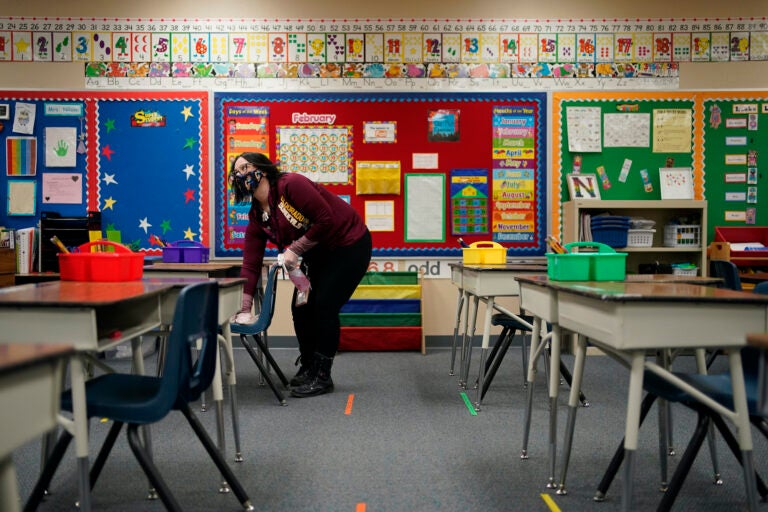Join Us: Occasions and Campaigns to Save Temecula Schools
Wiki Article
Comprehending the Relevance of Colleges in Youngster Development and Neighborhood Growth
Institutions' interaction with local neighborhoods with service-learning campaigns strengthens the bond in between families and academic organizations. This symbiotic relationship underscores the value of schools in nurturing energetic citizenship and lifelong learning behaviors.Academic Achievement
Academic success functions as a foundation of kid advancement, providing the structure whereupon future knowing and success are built. Schools play an essential duty in cultivating this academic development, using organized settings where children can acquire vital knowledge and cognitive skills. Standard educational program ensure that students gain effectiveness in core subjects such as mathematics, science, and language arts, which are crucial for both college and professional chances.Along with passing on essential scholastic abilities, schools additionally grow essential reasoning, analytical abilities, and intellectual curiosity. These cognitive proficiencies are essential for navigating complex real-world circumstances and adjusting to the ever-evolving demands of the modern work environment. Educators, as facilitators of knowing, utilize varied instructional approaches to accommodate diverse understanding designs, consequently making best use of private student potential.
In addition, scholastic success is closely connected to self-worth and motivation. Children who experience scholastic accomplishments are most likely to create a favorable self-concept and a long-lasting passion for discovering. Colleges additionally use various sources, such as libraries and technology, which additionally boost the academic experience and prepare students for a technically sophisticated culture.
Social Ability Growth
Beyond scholastic accomplishment, the function of institutions in social ability growth is vital. Schools work as a key place for children to find out and exercise vital social skills such as interaction, problem, and participation resolution. In the organized environment of a class, students engage with peers, educators, and various other institution team, offering various chances to establish these vital abilities.Efficient social ability growth in colleges is facilitated through group activities, joint jobs, and extracurricular programs. These communications help students understand social standards, build compassion, and promote a sense of area. As an example, group jobs instruct trainees how to collaborate towards a typical goal, listen to various viewpoints, and browse disputes constructively.

The farming of social skills throughout academic year lays a foundation for future individual and expert partnerships. Save Temecula Schools. As trainees mature, the capability to efficiently connect and collaborate becomes progressively crucial, emphasizing the institution's important duty in holistic child development
Exposure to Variety
Direct exposure to diversity in schools is essential to fostering an inclusive way of thinking and expanding pupils' point of views. Schools serve as a microcosm of the more comprehensive culture, and coming across varied societies, languages, and socioeconomic histories within this environment furnishes trainees with important skills for navigating a progressively globalized world. This exposure encourages empathy, minimizes prejudices, and advertises mutual regard among peers.Diverse classrooms likewise enhance cognitive and social development. Research shows that pupils who connect with peers from varied histories display better analytical abilities and creative thinking. They discover to appreciate various viewpoints, which improves class conversations and cultivates a much more vibrant learning experience. Additionally, this understanding of diversity prepares pupils for future workplaces that value modern competence.

Community Interaction
The advantages of varied class extend beyond the school wall surfaces, cultivating a solid sense of community interaction amongst trainees. By engaging with peers from numerous social, socioeconomic, and ethnic histories, pupils acquire a broader viewpoint and a recognition for variety. This exposure urges them to end up being energetic residents who are willing to contribute favorably to their areas.Schools that stress neighborhood interaction commonly integrate service-learning tasks, which enable students to resolve real-world issues while using scholastic skills. These projects not just boost students' understanding of their coursework however also impart a feeling of responsibility and compassion. Collaborations in between institutions and local companies provide students with opportunities to participate in neighborhood occasions, further solidifying their role as aggressive community participants - Save Temecula Schools.
Additionally, adult and community involvement in schools reinforces the bond in between instructional establishments and the areas they offer. Via these efforts, schools play a crucial duty in supporting neighborhood engagement and fostering societal growth.
Lifelong Learning Habits
Creating long-lasting knowing routines is crucial for a youngster's continuous growth and versatility in Check This Out an ever-changing globe. Schools play weblink an essential duty in instilling these practices by creating an atmosphere that cultivates curiosity, vital reasoning, and a love for knowledge. With extracurricular tasks and varied educational programs, teachers encourage pupils to explore various topics, assess details seriously, and use their discovering to real-world situations.
In addition, schools supply a structured atmosphere where youngsters can develop self-discipline and time administration abilities, both of which are crucial for continuous knowing. By emphasizing the importance of establishing objectives, reviewing progress, and adjusting methods, schools prepare pupils to navigate the intricacies of adult life, guaranteeing they continue to be lifelong students and factors to society.
Conclusion
In verdict, institutions are important in fostering youngster advancement and neighborhood development by giving atmospheres helpful to academic accomplishment, social ability advancement, and direct exposure to variety. Inevitably, institutions cultivate lifelong discovering habits, furnishing people with the necessary understanding and abilities to add positively to culture.In the structured atmosphere of a classroom, students interact with peers, educators, and other school team, offering many opportunities to establish these essential abilities.
In significance, exposure to variety within schools not only improves specific students however additionally enhances the social textile of the community as a whole.
The advantages of varied class expand beyond the school walls, cultivating a solid feeling of community interaction amongst pupils.Institutions that highlight neighborhood involvement usually integrate service-learning tasks, which enable trainees to attend to real-world problems while applying academic skills. Partnerships between Get the facts schools and local companies provide pupils with chances to take part in neighborhood events, even more strengthening their role as proactive area participants.
Report this wiki page